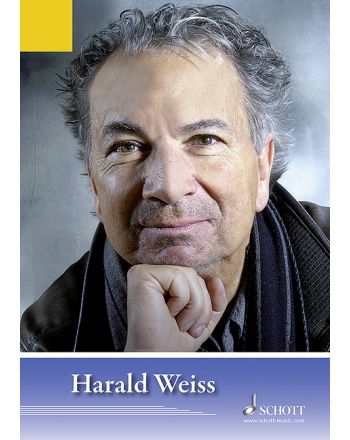
Harald Weiss
À propos de Harald Weiss
Harald Weiss was born on 26 May 1949 in Salzgitter, Germany. A very young student, he first studied violin and piano playing, composition and aural training at the Niedersachsen Music School in Braunschweig. From 1968 to 1972 he studied musical education, conducting and composition at the State Institute of Music and Theatre in Hanover. Additionally, he completed a course of studies in drums and percussion playing at the Hamburg Institute of Music.
From 1973 to 1976, after numerous engagements as a conductor and interpreter, he worked as a composer for the Städtische Bühnen in Bielefeld. There, he composed, arranged and conducted music scores for plays. Weiss was holding a professorship in the subjects rhythm and arrangement at the Hanover State Institute of Music and Theatre from 1973 to 1983. During this time he also worked as a freelance artist, a screen-writer, a composer and a director. Jazz and Rock music are an important source of inspiration for Weiss’s compositions. Also, his numerous trips (in the context of theatre workshops or tours) to Africa, Asia, Europe and South America have a significant influence on his music. In his works Weiss tries out alternative musical forms and sounds, which do not need electronic devices.
These experiments with the possibilities of natural sound production made him develop exceptional techniques for vocals and percussion. After having created mostly experimental works like instrumental plays, scenic sound projects, "happenings" and "performances", Weiss dedicated himself to the opera in the nineties: 1992, Amandas Traum, an opera about the opera business, had its premiere in the Alte Oper in Frankfurt. Das Gespenst Musiktheater für Kinder und Erwachsene, which he finished in 1997, was as successful as his first opera. Weiss’s conception of both works includes lighting, music, words and stage direction, and it aims at addressing all the senses of the audience.
Night, darkness and eclipse are central issues of Weiss' "Darkness Projekt", with which he dealt over 15 years. Throughout the cycle, he also came across the theme of light. Reise in die Nacht. Eine Performance zu Wasser und zu Lande in sieben Stationen is a tape composition which was realized in the context of the EXPO 2000 in Hannover and forms the beginning of the series. The instrumentation of the varied cycle ranges from chamber music, as the string quartet Stille Mauern (2003), to large-scale works for orchestra and choir, as is Ode an die Nacht (2014). The piece for soloists, mixed choir and instruments was commissioned by the EuropaChorAkademie and concluded the "Darkness Projekt".
For his compositions Weiss received many prizes and recognition, for example the Niedersachsen Kulturpreis in 1982, the Kulturpreis of Bielefeld in 1984, from 1985 to 1986 a fellowship from the Villa Massimo in Rome, the Isadora Prize 2010 and the Praetorius Music Award of the State of Lower Saxony. His films, too, earned him a number of awards.
Weiss, the freelance artist, composer, director and screen writer, lives in Mallorca since 1984.
Liste d'œuvres
Galerie
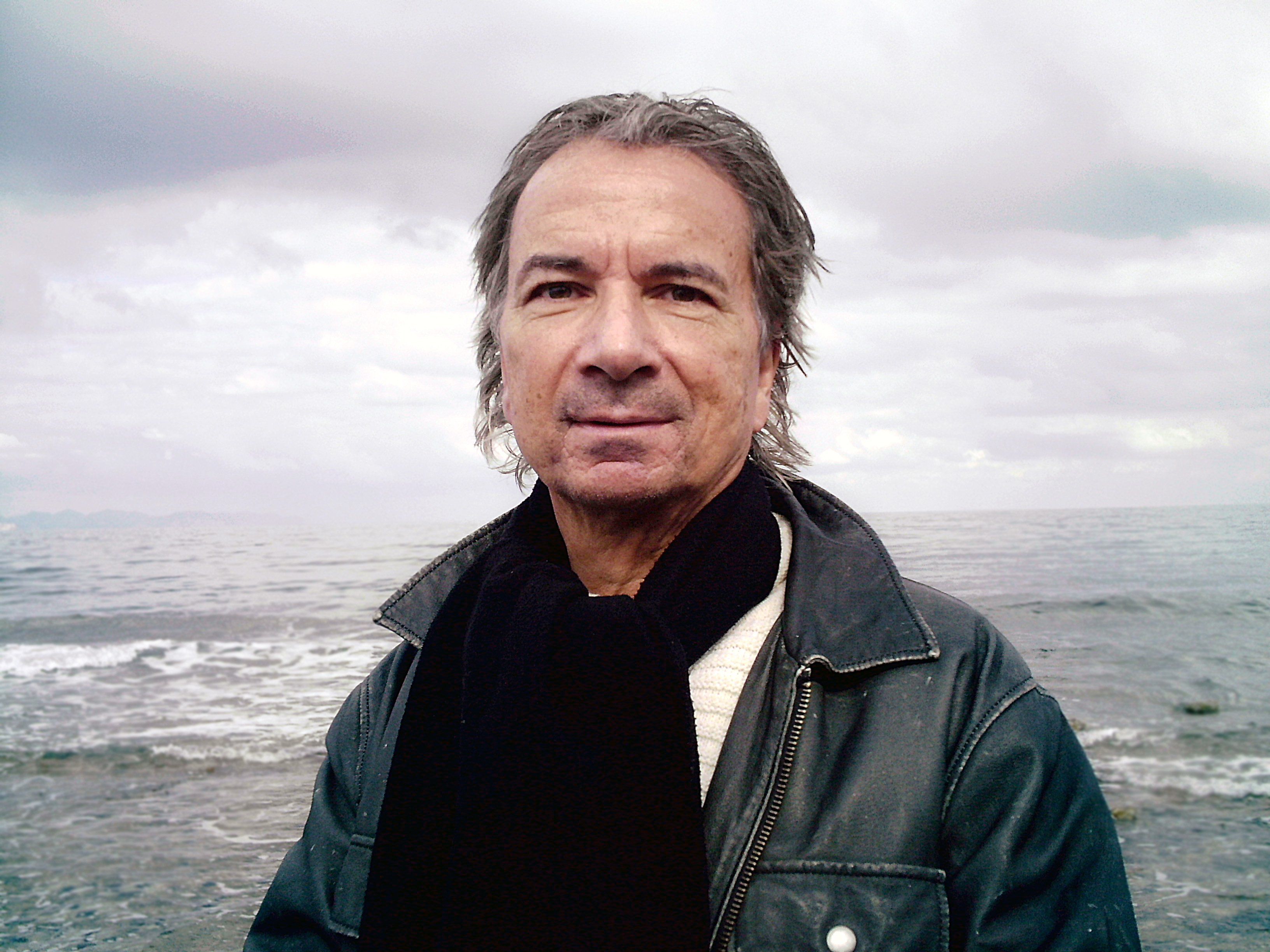
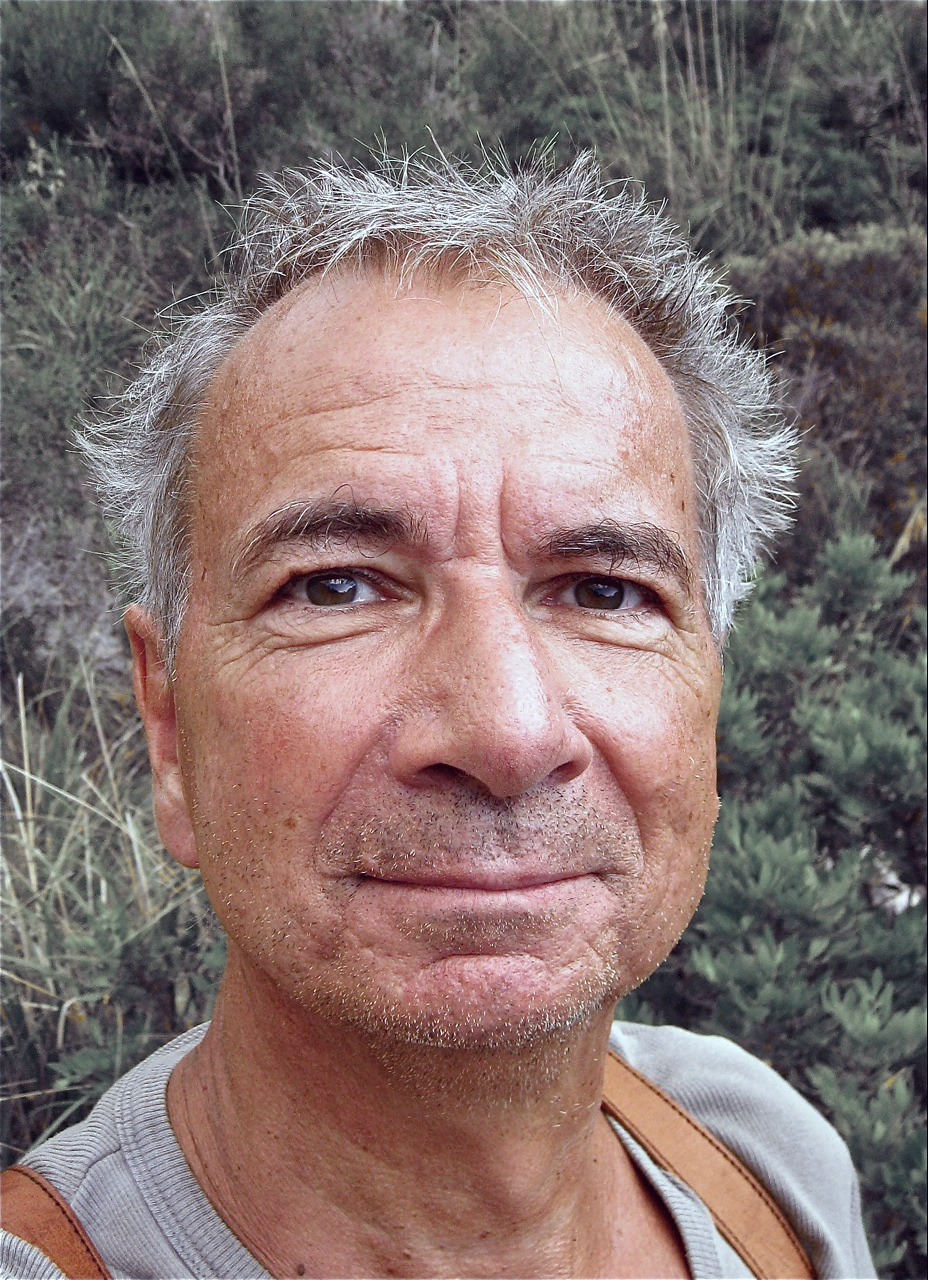
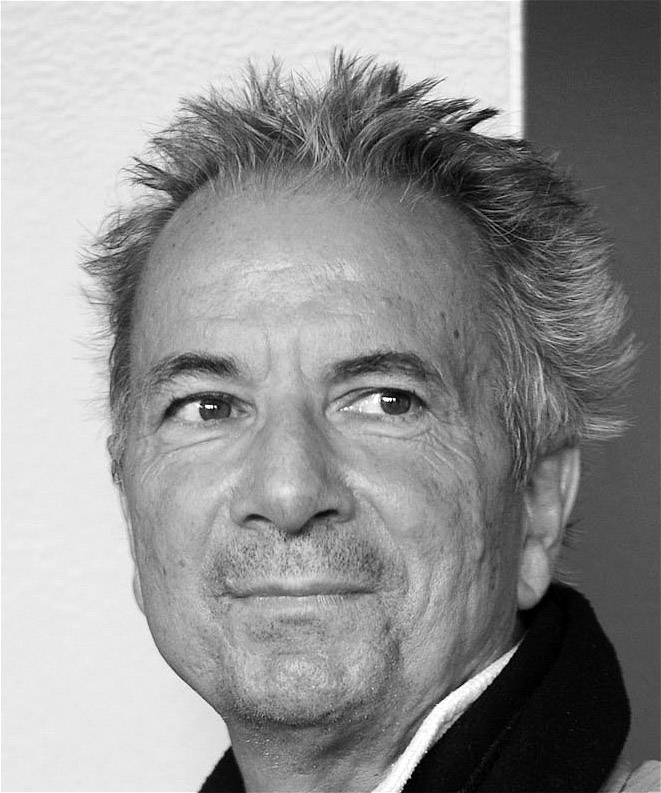


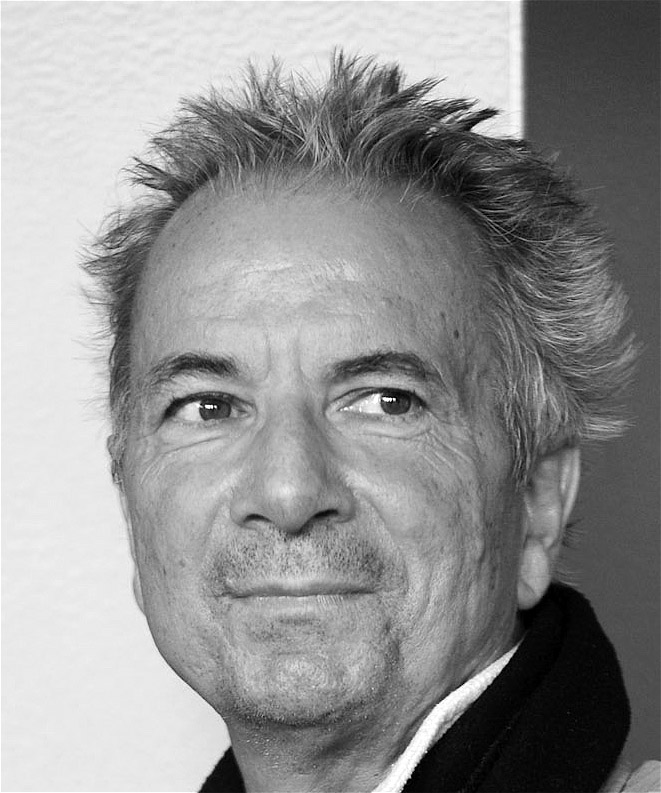

Chronologie
Produits
-
Ode an MozartCompositeur: Harald WeissMedia Type: Partition électronique en PDFInstrumentation: pianoNuméro du produit: ED 9952 Q41303En stock1,99 €TTC
-
Ein Stück über den AbschiedCompositeur: Harald WeissLibrettiste: Harald WeissInterprète: Carina Mora | Peter Müller | Janet Tyler | Monika Maria Ullemeyer | Harald WeissOrchestre/Ensemble: NOMOS-QuartettMedia Type: CDNuméro du produit: SM 1077-50En stock12,00 €TTC, hors expédition
-
für gemischten Chor (SSATBarB), Kinderstimme, Schlagzeug und OrgelCompositeur: Harald WeissEdition: Jeu de partiesSéries: Edition Schott
Am Anfang war das Wort
Instrumentation: choeur mixte (SSATBarB), voix d'enfant, batterie et orgueNuméro du produit: ED 21663-20Type de produitEn stockPrix à partir de 10,99 €TTC -
für gemischten Chor (SSATBarB), Kinderstimme, Schlagzeug und OrgelCompositeur: Harald WeissEdition: Réduction pour orgue, mit ChorstimmenSéries: Edition Schott
Am Anfang war das Wort
Instrumentation: choeur mixte (SSATBarB), voix d'enfant, batterie et orgueNuméro du produit: ED 21663-10Type de produitEn stockPrix à partir de 11,99 €TTC -
für gemischten Chor (SSATBarB), Kinderstimme, Schlagzeug und OrgelCompositeur: Harald WeissEdition: PartitionSéries: Edition Schott
Am Anfang war das Wort
Instrumentation: choeur mixte (SSATBarB), voix d'enfant, batterie et orgueNuméro du produit: ED 21663Type de produitEn stockPrix à partir de 21,99 €TTC -
Musiktheater in zwei Akten und einer PauseCompositeur: Harald WeissMedia Type: Matériel en location / d'exécutionEdition: Matériel d'exécutionLangue: Allemand
-
Musiktheater in zwei Akten und einer PauseCompositeur: Harald WeissMedia Type: LivreEdition: LivretSérie: Amandas Traum
Instrumentation: Soli, Chor u. Orch.Langue: AllemandNuméro du produit: BN 3932-20En stock9,50 €TTC, hors expédition -
für Knabensopran, Sopran, Tenor, Flügelhorn, gemischten Chor und KammerorchesterCompositeur: Harald WeissMedia Type: Matériel en location / d'exécutionEdition: Matériel d'exécutionInstrumentation: soprano, ténor, choeur et orchestreLangue: Allemand, Latin
-
Nouvelles pièces pour piano. Petrushka ProjectMedia Type: PartitionInstrumentation: pianoLangue: AnglaisNuméro du produit: ED 21470En stock10,00 €TTC, hors expédition
-
für Solisten, Chor (SSATTB) und InstrumenteCompositeur: Harald WeissMedia Type: Matériel en location / d'exécutionEdition: Matériel d'exécutionInstrumentation: solistes, choeur (SSATTB) et instrumentsLangue: Allemand
-
Musiktheater für Kinder und Erwachsene in zwei Akten und einer PauseCompositeur: Harald WeissMedia Type: Matériel en location / d'exécutionEdition: Matériel d'exécutionLangue: Allemand
-
Musiktheater für Kinder und Erwachsene in zwei Akten und einer PauseCompositeur: Harald WeissMedia Type: LivreEdition: LivretSérie: Das Gespenst
Instrumentation: solistes, choeur et orchestreLangue: AllemandNuméro du produit: BN 3933En stock9,00 €TTC, hors expédition -
Musical theater for children and adults in two parts including a pauseCompositeur: Harald WeissInterprète: Heidi Blanke | Tadeusz Galczuk | Stephanie Lange | John Parr | Carola Rentz | Frank Schneiders | Bohdan Swiderski | Harald WeissOrchestre/Ensemble: Niedersächsisches Staatsorchester HannoverChef d'orchestre: Stephan TetzlaffMedia Type: CDNuméro du produit: ALC 52012En stock12,00 €TTC, hors expédition
-
Version for 4 accordions and pre-recorded soundsCompositeur: Harald WeissEdition: Partition et partiesSérie: Edition Schott
Instrumentation: 4 accordéons et bande enregistréeNuméro du produit: ED 22809Type de produitEn stockPrix à partir de 62,99 €TTC -
A music-theatrical project for four accordion groups and tapesCompositeur: Harald WeissMedia Type: Matériel en location / d'exécutionEdition: Matériel d'exécutionInstrumentation: 4 Akkordeongruppen und Zuspielbänder
-
Media Type: LPNuméro du produit: T 207En stock7,30 €TTC, hors expédition
-
Vol. 3 | Ensemblestudien 7-12Auteur: Harald WeissMedia Type: PartitionEdition: Partition d'exécutionSérie: Die Schlagzeugwerkstatt, Vol. 3
Instrumentation: batterieLangue: AllemandNuméro du produit: ED 6862En stock16,00 €TTC, hors expédition -
Vol. 2 | Ensemblestudien 1-6Auteur: Harald WeissMedia Type: PartitionEdition: Partition d'exécutionSérie: Die Schlagzeugwerkstatt, Vol. 2
Instrumentation: batterieLangue: AllemandNuméro du produit: ED 6861En stock16,00 €TTC, hors expédition -
Vol. 1 | Idee und AnsatzAuteur: Harald WeissMedia Type: PartitionSérie: Die Schlagzeugwerkstatt, Vol. 1
Instrumentation: batterieLangue: AllemandNuméro du produit: ED 6860En stock16,00 €TTC, hors expédition -
Compositeur: Harald WeissEditeur: Siegfried FinkMedia Type: PartitionSérie: Solo für Percussion
Instrumentation: batterieLangue: Allemand, Français, AnglaisNuméro du produit: ZM23670En stock10,00 €TTC, hors expédition -
Fragment du quatuor "Stille Mauern" (Les murs silencieux)Type de produitEn stockPrix à partir de 6,99 €TTC
-
Fragment du quatuor "Stille Mauern" (Les murs silencieux)Compositeur: Harald WeissEdition: Partition et partiesSéries: Edition Schott
Après un rêve
Instrumentation: quatuor à cordesNuméro du produit: ED 9964Type de produitEn stockPrix à partir de 9,99 €TTC -
List of of Published WorksEn stock0,00 €TTC, hors expédition
-
An acoustical filmCompositeur: Harald WeissLibrettiste: Harald WeissInterprète: Jan Henrik Behnken | Gundula Bernholt | Karin Fischer | Traute Fölss | Günter Helwes | Anna Hertz | Stefanie Kühne | Peter Langehein | Jelena Mitschke | Anke Moser | Udo Motzheim | Ulf Pankoke | Hans-Dieter Reinecke | Heinrich Röbenack | Petra Röbenack | Burkhart M. Schürmann | Peter Thomas | Harald WeissChoeur: Camerata Vocale Hannover | Canta Nova | Heinrich-Schütz-ChorOrchestre/Ensemble: NOMOS-QuartettMedia Type: CDNuméro du produit: SM 10892En stock12,00 €TTC, hors expédition
-
from Reise in der NachtCompositeur: Harald WeissMedia Type: Partition électronique en PDFInstrumentation: choeur mixte (SATB)Langue: AllemandNuméro du produit: C 57130 Q25251En stock2,99 €TTC
-
for soloists (SATB), mixed choir, 2 pianos and harmoniumCompositeur: Harald WeissMedia Type: Matériel en location / d'exécutionEdition: Matériel d'exécutionInstrumentation: solistessten (SATB), choeur mixte, 2 pianos et harmoniumLangue: Allemand
-
Vier Lieder für Mezzosopran und KammerensembleCompositeur: Harald WeissEdition: Partition et partiesSérie: Edition Schott
Instrumentation: mezzo-soprano, clarinette en si bémol (aussi basseclarinette en si bémol), vibraphone (aussi marimba), alto et pianoNuméro du produit: ED 21830Type de produitEn stockPrix à partir de 39,99 €TTC -
for piano trioCompositeur: Harald WeissEdition: Partition et partiesSérie: Edition Schott
Instrumentation: violon, violoncelle et pianoNuméro du produit: ED 22952Type de produitEn stockPrix à partir de 9,99 €TTC -
for mixed choir (SSAATB), harpsichord, string orchestra and percussionCompositeur: Harald WeissMedia Type: Matériel en location / d'exécutionEdition: Matériel d'exécutionInstrumentation: choeur (SSAATB), clavecin, orchestre à cordes et percussionLangue: Latin
-
16 Piano worksEn stock20,00 €TTC, hors expédition
-
für Perkussionsinstrumente, Stimmen und O-TöneMedia Type: CDNuméro du produit: SM 10862En stock12,00 €TTC, hors expédition
-
Compositeur: Harald WeissEdition: PartitionSéries: Concertino
Nachtmusik
Instrumentation: seulguitare, ensemble de guitares, orchestre à cordes et batterieNuméro du produit: CON 180Type de produitEn stockPrix à partir de 16,99 €TTC -
Compositeur: Harald WeissMedia Type: PartitionEdition: Parties supplémentaires, 3 Gitarren, 3 Violinen I-III [VII-IX], 3 Violinen IV-VI [X-XII], 2 Violen I/II [III], 3 Violoncelli I-III [IV], Kontrabass I/IISéries: Concertino
Nachtmusik
Instrumentation: seulguitare, ensemble de guitares, orchestre à cordes et batterieNuméro du produit: CON 180-60En stock24,00 €TTC, hors expédition -
Compositeur: Harald WeissMedia Type: PartitionEdition: Jeu de parties, 7 Gitarren, 2 Schlagzeuge I-II, 3 Violinen I-III, 2 Violinen IV-VI, 2 Violen I-II, 3 Violoncelli I-III, Kontrabass I-IISéries: Concertino
Nachtmusik
Instrumentation: seulguitare, ensemble de guitares, orchestre à cordes et batterieNuméro du produit: CON 180-50En stock50,00 €TTC, hors expédition -
for soloists, choirs and instrumentsCompositeur: Harald WeissMedia Type: Matériel en location / d'exécutionEdition: Matériel d'exécutionInstrumentation: pour solistes, choeurs et instrumentsLangue: Hopi, Indisch, Latin, Anglais
-
for solo violin and string orchestraCompositeur: Harald WeissMedia Type: Matériel en location / d'exécutionEdition: Matériel d'exécutionInstrumentation: violon et orchestre à cordes
-
Eine Performance zu Wasser und zu Lande in sieben StationenCompositeur: Harald WeissMedia Type: Matériel en location / d'exécutionEdition: Matériel d'exécutionInstrumentation: Tonbandkomposition
-
Teil I: Schwarz vor Augen... · Teil II: ...und es ward Licht!Compositeur: Harald WeissEdition: Partition d'étudeSérie: Music Of Our Time
Instrumentation: soprano, ténor, Knabensoprano, bugle à pistons, choeur mixte et orchestre de chambreNuméro du produit: ED 20619Type de produitEn stockPrix à partir de 46,99 €TTC -
for soprano, mixed choir (SSATB with tenor solo), organ and percussionCompositeur: Harald WeissMedia Type: Matériel en location / d'exécutionEdition: Matériel d'exécutionInstrumentation: soprano, ténor, choeur mixte, orgue et batterieLangue: Allemand, Latin
-
Fassung für Sopran, Tenor, gemischten Chor, zwei Klaviere und SchlagzeugCompositeur: Harald WeissMedia Type: Matériel en location / d'exécutionEdition: Matériel d'exécutionInstrumentation: soprano, tenor, choeur mixte, 2 pianos et percussionLangue: Allemand, Latin
-
Gekürzte FassungCompositeur: Harald WeissMedia Type: Matériel en location / d'exécutionEdition: Matériel d'exécutionInstrumentation: soprano, ténor, bugle à pistons, choeur mixte et orchestre de chambreLangue: Allemand, Latin
-
Teil I: Schwarz vor Augen... · Teil II: ...und es ward Licht!Compositeur: Harald WeissMedia Type: Matériel en location / d'exécutionEdition: Matériel d'exécutionInstrumentation: Sopran, Tenor, Knabensopran, Flügelhorn, gemischter Chor und KammerorchesterLangue: Allemand, Latin
-
for soprano, flute, organ, percussion and mixed choir (SSAATTBB)Compositeur: Harald WeissMedia Type: Matériel en location / d'exécutionEdition: Matériel d'exécutionInstrumentation: soprano, flûte, orgue, batterie et choeur (SSAATTBB)Langue: Allemand, Latin
-
for piano trioCompositeur: Harald WeissEdition: Partition et partiesSérie: Edition Schott
Instrumentation: violon, violoncelle et pianoNuméro du produit: ED 22584Type de produitEn stockPrix à partir de 12,99 €TTC -
for string quartet and tapeCompositeur: Harald WeissOrchestre/Ensemble: NOMOS-QuartettMedia Type: CDNuméro du produit: WER 66852En stock18,50 €TTC, hors expédition
-
Compositeur: Harald WeissMedia Type: Partition avec CDEdition: Partition et parties, Ausgabe + 2 CD'sSérie: Edition Schott
Instrumentation: quatuor à cordesNuméro du produit: ED 9963En stock53,00 €TTC, hors expédition -
for pianoCompositeur: Harald WeissMedia Type: Partition électronique en PDFEdition: Edition séparéeSérie: Edition Schott
Instrumentation: pianoNuméro du produit: ED 21370 Q11796En stock1,99 €TTC -
A piece with prologue but without finaleEn stock12,00 €TTC, hors expédition
-
An acoustical filmEn stock12,00 €TTC, hors expédition
-
Ein PortraitCompositeur: Harald WeissInterprète: Carina Mora | Peter Müller | Harald WeissOrchestre/Ensemble: Cyklus | Mandolinenorchester BielefeldMedia Type: CDNuméro du produit: WER 62012En stock12,00 €TTC, hors expédition



















